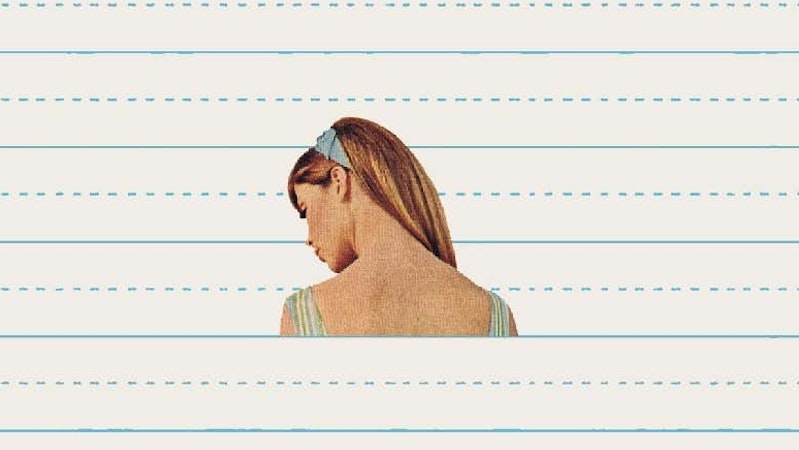
We chosen five fiendishly good reviews for you this week, friends, including Parul Sehgal on Carmen Maria Machado’s experimental memoir, Sophie Gilbert on John le Carré’s new spy thriller, Kate Aronoff on Jonathan Safran Foer and the “climate sad bois,” Fareed Zakaria on Rachel Maddow’s expose of the oil and gas industry, and Kaitlin Phillips on Fleur Jaeggy’s ice-cold boarding school classic.
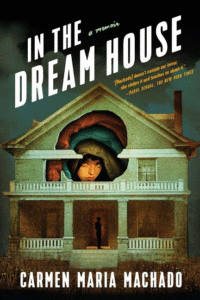
“Welcome to the House of Machado. Proceed directly into the forbidden room; enjoy the view as the floor gives way… Machado has described herself as a ‘form vampire,’ obsessed with structures, real and narrative, and with mingling techniques from fiction and nonfiction. This book is a hive of frenetic experimentation, tactics and tricks … There is something anxious, and very intriguing, in the degree of experimentation in this memoir, in its elaborately titivated sentences, its thicket of citations. The flurry—the excess—feels deliberate, and summons up the image of the writer holding a ring of keys, trying each of them in turn to unlock a resistant story, to open a door she might be hesitant to enter … In the Dream House is written into the silence surrounding violence in queer relationships, the silences around emotional and psychological abuse … At its conclusion, what does she leave us but a library in miniature—those long-invisible, long-suppressed stories now culled from every quarter of history, and explored in every conceivable genre—a living archive of her own loving, idiosyncratic design.”
–Parul Sehgal on Carmen Maria Machado’s In the Dream House (The New York Times)
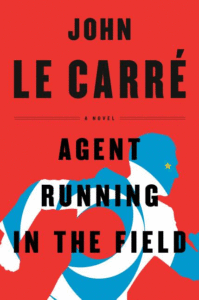
“If in John le Carré’s novels the British intelligence service stands as a microcosm for the state of the nation itself, then bad news: In 2019, we’re looking less at a major global power than at a leaky, pusillanimous, perennially cash-strapped institution … Agent Running in the Field is a master spy novelist’s attempt to capture Brexit Britain in all its dysfunction and ignominy… Le Carré is perhaps the preeminent cartographer of international malfeasance, and his portrayal of spycraft is as enthralling as ever. Although he eschews more modern kinds of espionage for old-fashioned, in-person document drops and the careful cultivation of human intelligence, his stories don’t feel remotely anachronistic. But his characters, at this point, might … In many ways, the intrigue of Agent Running in the Field is secondary to its function as a renowned author’s scathing indictment of a country selling itself out … [le Carré] remains one of the most shrewd and sonorous voices willing to speak truth to power.”
–Sophie Gilbert on John le Carré’s Agent Running in the Field (The Atlantic)
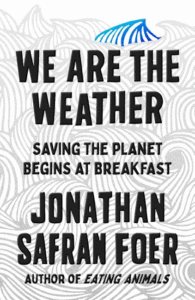
“Over the last few years we have seen a veritable cottage industry of essays by novelists turned climate catastrophists: Jonathan Franzen in The New Yorker writing on birds and how inevitable the coming collapse is, Michael Chabon in The Paris Review lamenting that his art residency has not changed the world, Nathaniel Rich in The New York Times Magazine offering us an obituary for climate policy-making. The climate sad bois abound, bringing us an important truth that they believe they alone have discovered and that alone can deliver the world from catastrophe, or at least confer on them some sort of personal absolution as the planet burns. Stop hoping and start growing kale and strawberries, Franzen tells us. Make art, Chabon suggests. All of this is to say that there are a great many voices that have been missing from the public conversation about the climate crisis, but none of them are Jonathan Safran Foer’s… Like so many well-intentioned liberals, Foer individuates a collective problem … While hardly a conservative ideologue, Foer can often sound like one … What’s so unsettling and even tragic about Foer’s book is that his moralizing is illustrative of a broader self-flagellating despair among many liberals who are troubled by the ominous climate forecasts but who have absorbed right-wing nostrums that it’s a problem of our shared making.”
–Kate Aronoff on Jonathan Safran Foer’s We Are the Weather (The Nation)
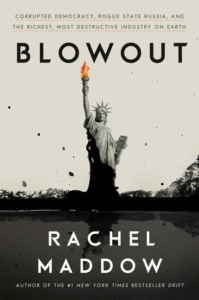
“Blowout is a rollickingly well-written book, filled with fascinating, exciting and alarming stories about the impact of the oil and gas industry on the world today. While she is clearly animated by a concern about climate change, Maddow mostly describes the political consequences of an industry that has empowered some of the strangest people in the United States and the most unsavory ones abroad … While there are many colorful tales about villains, scoundrels and adventurers, the through-line of this book is the story of the rise of Vladimir Putin. The most important geopolitical consequence of the oil and gas boom of the last 20 years has been Russia’s development into a full-blown petrostate, Putin’s consolidation of power and his determination to use this capacity to protect himself and disrupt the West … One of the book’s themes is the degree to which Western capitalists—bankers and oilmen—abetted Putin’s rise to power, cheered on his capture of resources and partnered with him no matter what he was doing to Russia’s democratic and capitalist experiment … Maddow’s book is rich with other stories, from fracking in Oklahoma to the BP oil spill in the Gulf of Mexico. But while the tone throughout is one of shock, amazement and condemnation, the book is not as radical in its conclusions as readers might have anticipated. Maddow advocates more stringent rules on Western companies aiding foreign corruption. And she argues for an end to subsidies for the oil and gas industry … Blowout is a brilliant description of many of the problems caused by our reliance on fossil fuels. But it does not provide a path out of the darkness.”
–Fareed Zakaria on Rachel Maddow’s Blowout (The New York Times Book Review)

“Of the white women novelists rediscovered of late, it caught my attention that Renata Adler, Anna Kavan, and Fleur Jaeggy all spent their girlhood in boarding schools, a biographical detail coolly refracted in their work, writing that benefits from the mystique of privilege … no one advances the thesis of boarding school as fundamentally injurious to children further than Jaeggy. Her cult novel Sweet Days of Discipline (now reissued on its thirtieth anniversary) is a brisk reminiscence of a platonic romance at a small boarding school high up in the Alps. Many of the girls are rendered spiritual cripples … À la The Magic Mountain, Jaeggy deftly situates this mountain boarding school as a breeding ground for bourgeois sterility … This non-affair is imbued with an almost mythological significance, while the narrator’s confusion atrophies to reveal more untoward preoccupations underneath. She references illness, dying, religion over and over, as if massaging rosary beads in her mind. The themes are so potent and heavy-handed, their odor wafts like rotting fruit from the spine of the book … If the book were longer I’d have to admit its flaws: repetitions (meant, perhaps, to mirror a disturbed mind), further culs de sac in the plot, some rather high-handed metaphors. But clocking in at a sharp 101 pages, you’re finished before you can lodge a complaint, its contents going down as smoothly as a martini served in an ice-cold glass.”
–Kaitlin Phillips on Fleur Jaeggy’s Sweet Days of Discipline (4Columns)

